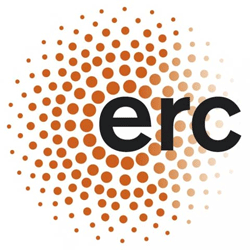Recent Stories
- Businesses urged to tap into science and technology young talent
- Digital relay baton enables remote crowd cheering of athletes
- Health Innovation Campus moves a step closer
- £7.1 million R&D boost for North West businesses
- Centre of excellence created for the next industrial revolution
- Artificial intelligence toolkit spots new child sexual abuse media online
- Strategic partnership set to help plug cyber security skills gap
- What your choice of smartphone says about you
- InfoLabTree: Discover the Story
- novi.digital Launch Event - 'An Event to Help Businesses Grow Online'
RSS Feeds
RSS feeds can deliver the latest InfoLab21 news and events direct to your browser without you having to visit the website.
In most browsers you can click on an RSS link and choose to subscribe to the feed to add it to your favourites or bookmarks.
Digital Humanities project awarded £1.5m grant
Story supplied by LU Press Office

Lancaster University has been awarded a European Research Council Starting Grant of £1.5 million for a five-year project which will act as a flagship programme for Digital Humanities research.
Building upon Lancaster's international expertise in Corpus Linguistics and Geographical Information Systems (GIS), the project will develop methodologies for the automatic extraction of place names from large bodies of text, a process which will facilitate spatial interpretations of both historical events and imaginative representations of space and place.
The interdisciplinary project 'Bringing Geographical Information Systems (GIS) to the Digital Humanities: Defining Spatial Humanities' is led by Dr Ian Gregory (History) along with Dr Paul Rayson ( School of Computing and Communications), Dr David Cooper ( English & Creative Writing) and Dr Andrew Hardie (Linguistics and English Language).
They will investigate the ways in which digital mapping technologies can help geographical analyses in overlapping fields of research.
These techniques will then be applied to two major case studies.
The first will explore the literary geographies of the Lake District from the middle of the eighteenth-century to the early twentieth-century. This strand of the project will focus primarily on mapping an extensive range of literary texts; but it will also explore how the spatial patterns embedded within these writings relate to contemporary web 2.0 representations (such as photographs on Flickr) of the Lakes.
The second strand will concentrate on nineteenth-century social and demographic history and will examine how textual sources can be integrated with statistical information - from sources such as the census - to shed new lights on a range of topics including mortality decline.
The project will also include a significant training component to widen the skills base in the use of digital technologies within a range of humanities disciplines. It will also involve extensive collaboration with a range of cultural heritage partners in the north west and beyond.
Mon 31 October 2011



